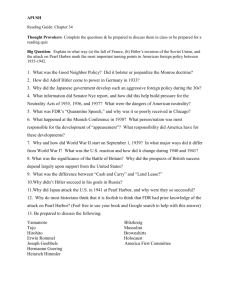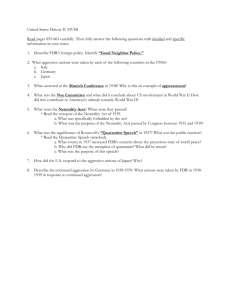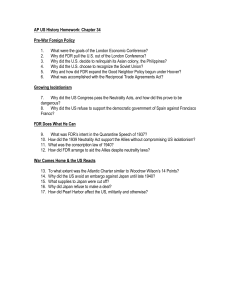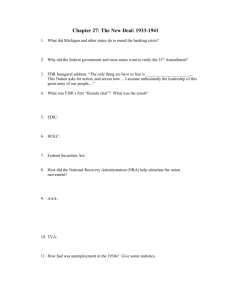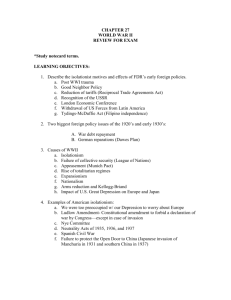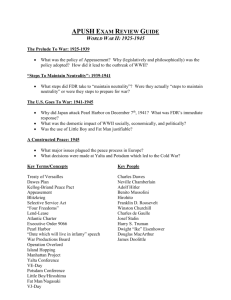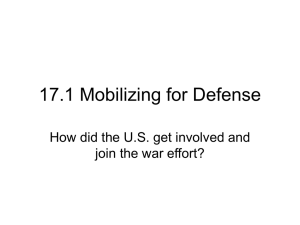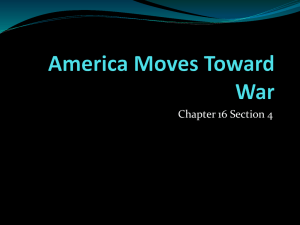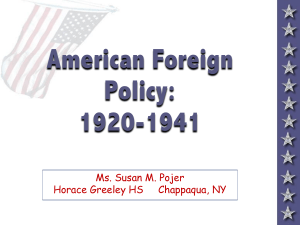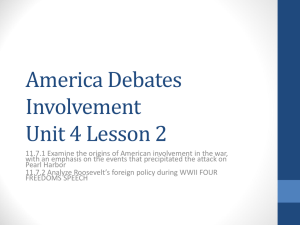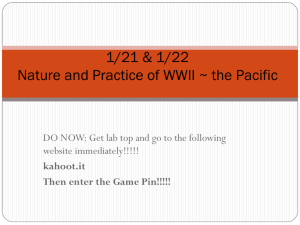File
advertisement
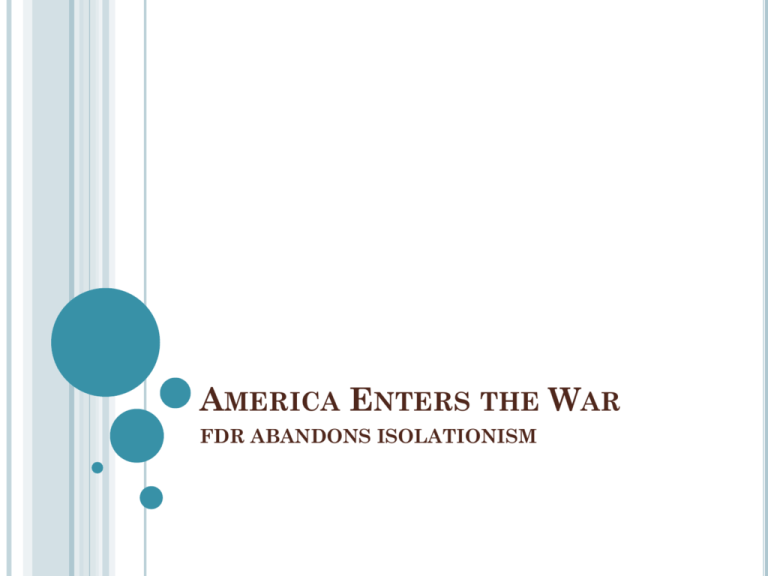
AMERICA ENTERS THE WAR FDR ABANDONS ISOLATIONISM FDR’S TAKE ON WWII Delivered his Quarantine Speech called war a disease that the U.S. needed to avoid (quarantine) because it was deadly Instead of war, sign peace agreements Quarantine (isolate) aggressive nations Connected to U.S. traditional isolation and neutrality policy NEUTRALITY ACTS Attempts at avoiding U.S. involvement in WWII but were revised in 1939 allowed FDR to sell goods and weapons to nations that paid cash and transported the goods themselves This helped the Allies and violated true neutrality But Germany was winning and we had to do something FDR MOVES TOWARD WAR After his re-election (3rd term) FDR started to push for war, saw it as inevitable FDR delivered his Four Freedom’s Speech … the only way U.S. could keep her freedom of speech, of worship, from want and from fear was to help Great Britain combat Nazi Germany and Japanese militarism LEND-LEASE ACT allowed FDR to sell, lease or lend defense materials to Allies was an economic declaration of war against Axis Powers violated neutrality In response Germany begins to attack merchant ships delivering these war materials to Great Britain using U-Boats …the U.S. is practically fighting in WWII with dollars not bullets PEARL HARBOR (“A DAY THAT WILL LIVE IN INFAMY”) Japan relied on U.S. for natural resources (specifically oil) but the U.S. ended trade (embargo) with Japan…negotiations were unsuccessful In response, General Hideki Tojo sent troops to bomb U.S. military base at Pearl Harbor on December 7, 1941 surprise attack 2,500 servicemen killed disabled the base and supplies for six months FDR asked Congress for a declaration of war … the U.S. enters the war with the Allies EFFECTS OF PEARL HARBOR U.S. begins to restrict the rights of Japanese living in the country because they were seen as disloyal Japanese-Americans placed in internment camps (temporary imprisonment) Korematsu vs. U.S. upheld the government’s ability to use internment camps against citizens during wartime U.S. MOBILIZES (PREPARES FOR WAR) Huge patriotism followed Pearl Harbor Attack people enlisted, gave blood, volunteered people bought war bonds to fund the war, connected to victory Women’s Army Corps (WACs): gave army jobs to women nurses, clerical work, typists, truck drivers, etc. Rosie the Riveter became symbolic for women to show their war efforts making war materials Mobilization continues War Production Board: oversaw the transition of peacetime industries to war time industries Ford made planes not cars Other government agencies were created to distribute scarce resources, create patriotism Rationing: Americans were issued coupon books that limited the amount of certain goods they could buy Propaganda or Patriotism?
